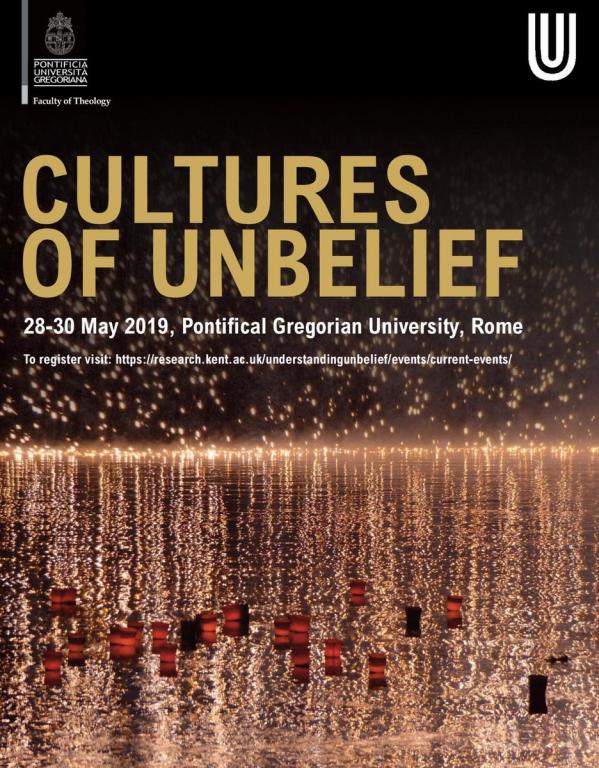
How American Christianity Perpetuates: Reasons #3-5
Public shaming by elected officials.
That sums up reasons No. 3 through 5 for how Christianity endlessly perpetuates in the United States despite its doctrines being entirely speculative.
All three causes were noted in recent posts in the online Patheos Nonreligious hub, including two in Hemant Mehta’s Friendly Atheist blog. Here’s a summary roundup of these latest in my continuing list of religious perpetuators:
Reason #3: Official shaming of people who criticize religious behavior
Joy Behar, the comedienne and co-host of the popular daytime ABC-TV talk show The View, recently landed in hot water after responding to a statement by former Trump aide Omarosa Manigault Newman that Vice President Mike Pence “talks to Jesus and believes Jesus tells him things.” Behar’s follow-up comment:
“It’s one thing to talk to Jesus. It’s another thing when Jesus talks to you … that’s called mental illness.”
Fox News’ Todd Starnes attacked Behar in an op-ed, contending it was understandable a “Christophobe like Behar” would be “dumbfounded” by the idea that people dialogue with invisible divinities. Starnes added that “if hearing the voice of God means (you are) mentally insane,” then he must be crazy himself. He referred to Behar as an “anti-Christian bigot,” implying ABC should fire her from The View.
Vice President Pence also castigated Behar on C-Span and on Fox’s Hannity opinion program, and he later urged her to publicly apologize to the American people:
“To have ABC maintain a broadcast forum that compared Christianity to mental illness is just wrong. It is simply wrong for ABC to have a television program that expresses that kind of religious intolerance.”
Later, on her program Behar offered a mea culpa:
“I was raised to respect everyone’s religious faith, and I fell short of that. So, I sincerely apologize for what I said.”
It’s irrelevant whether the Powers That Be at The View demanded an apology to protect their program’s advertising revenue and/or whether Behar believed she had stepped over the line with her commentary. What’s relevant is that as socio-political commentary, what she said was fair and defensible. Where else but in religion is conversing with phantoms considered rational, sane behavior? And when the leaders who govern us do carry on such a dialogue, it is absolutely fair to question. Freedom of religion does not mean freedom from fair and rational criticism.
Reason #4: Official shaming of people who criticize religious assumptions
When thousands of South Carolina students walked out of classes in peaceful protest on March 14, calling for fewer “thoughts and prayers” and stricter laws on gun ownership, Gov. Henry McMaster publicly castigated them as naïve tools of left-wing liberals. He called the walk-out “shameful.” McMaster’s advice for fixing the problem of school shootings, besides more guns:
“What we should all do and what these students should do … is to pray and to hope for the families of those who were slain.”
A nice sentiment, but appealing to unverified deities is not a very practical or well-advised solution. Shaming these students also will not help. David Hogg, one of the survivors of the recent school shooting in Florida and a spokesman for the nascent student anti-gun movement, warned McMaster in a tweet that “those future voters” who walked out in South Carolina “will not reelect you.”
Reason #5: Official damning of nonbelievers to Hell
The government of Kansas, that bastion of Christian apologetics, is at it again.
When an atheist recently asked to deliver an invocation at a meeting of the Sedgwick County Commissioners—a courtesy long afforded Christians—its elected officials refused. They claimed that such pre-opening remarks can only be given by “religious leaders or clergy members of a religious group with an established presence in Sedgwick County.”
Thus, nonreligious people were officially identified as social pariahs to be shunned and faithful folks as the “in” group to be embraced and privileged. If only Thomas Jefferson was here to weigh in.
But wait, it was worse. At a county staff meeting, Commissioner David Unruh attacked the atheist petitioners, saying:
“If you don’t believe in (God), that’s fine with me. I don’t care, go to hell. It’s fine.”
Noting that the Freedom from Religion Foundation (FfRF) had recently sent a letter to the commission notifying them that blocking atheists from giving invocations was against the law, Unruh was further inspired to trash talk:
“Are we going to get sued by these people who want us to not believe in God. I just keep wondering, why are you (atheists) so exercised about trying to prove to me that something doesn’t exist? It’s logically stupid.”
Curious he should invoke logic. The FfRF doesn’t care about the commissioners’ belief in a netherworld; it just cares whether they believe in the laws of this one.
These three examples show how our elected officials continue to promote religious, mainly Christian, ideology, and rebuke all skepticism—unconstitutionally—at the expense of reason.















